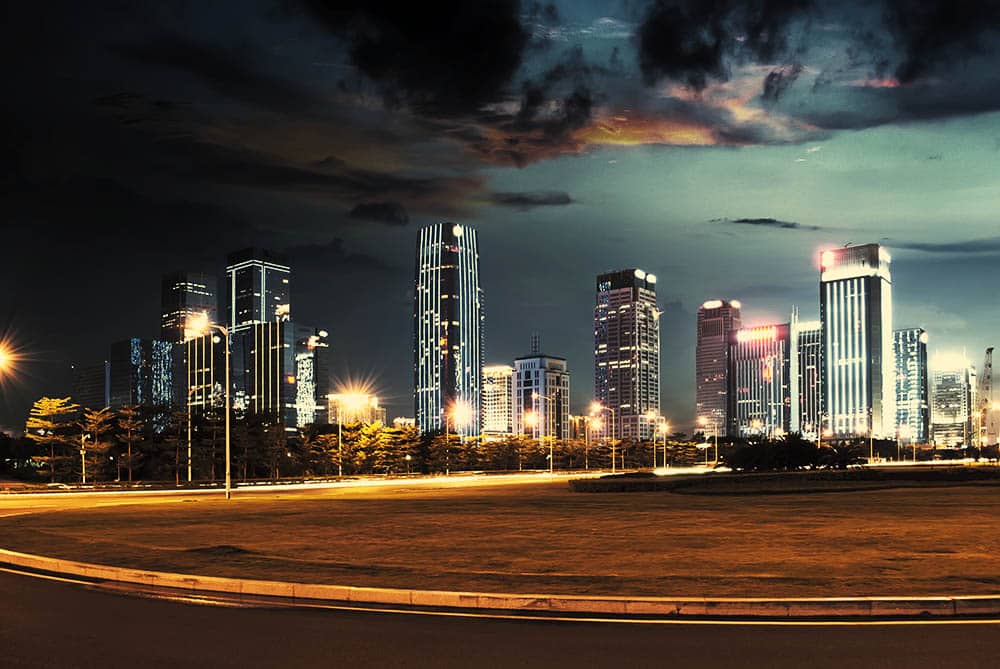The Geostrategic Importance of Iran
Iran is one of the world’s oldest civilizations and one of the few countries in the Middle East with a rich cultural heritage. However, Iran is also known for its complicated geopolitical situation, which makes the country a central player on the international stage.
Iran, also known as the Islamic Republic of Iran, is a country located in Western Asia. It is bordered by Iraq to the west, Turkey, Armenia and Azerbaijan to the northwest, the Caspian Sea to the north, Turkmenistan to the northeast, Afghanistan and Pakistan to the east, and the Persian Gulf and the Gulf of Oman to the south.
Unlike many other countries in the region, Iran has maintained its sovereignty throughout its history. It has a rich cultural heritage and a diverse population, with different ethnic, linguistic, and religious groups. Also, Iran controls the Strait of Hormuz, one of the world’s most important oil shipping routes.
The Current Situation in Iran
Iran is currently facing many challenges, both internally and externally. Iran is facing economic sanctions imposed by the United States, which have had a severe impact on the Iranian economy. The US withdrawal from the 2015 nuclear deal and the assassination of General Qassem Soleimani have further escalated tensions between Iran and the US.
The Iranian economy is heavily dependent on oil exports, and the sanctions have severely impacted the country’s economy. The sanctions have led to shortages of essential goods, including medicine and food. The country has been hit hard by the COVID-19 pandemic, with over 3 million cases and more than 83,000 deaths.
Also, Iran is suffering from political instability. The country is a theocratic republic, with a complex political system that balances the authority of the supreme leader, the president, and the parliament. The government has faced protests and demonstrations from various groups, including laborers, students, and political activists.
The Role of Iran in Middle East Peace
Iran is a significant player in the Middle East and has a significant influence on regional politics. Iran has a long-standing rivalry with Saudi Arabia, which has led to proxy wars in Yemen, Iraq, and Syria. Also, Iran supports various non-state actors throughout the region, including Hezbollah in Lebanon and Hamas in Palestine.
The Iranian government has consistently rejected the notion of a peace deal with Israel, a US ally, and sees the Palestinian cause as a central issue in the Middle East. However, the 2020 Abraham Accords, which normalized relations between Israel and several Arab countries, have left Iran feeling increasingly isolated.
Iran’s role in the region is crucial to achieving lasting peace. Iran’s support for non-state actors, such as Hezbollah and Hamas, has contributed to instability in the region. However, Iran can also play a positive role in peace negotiations by using its influence to support peaceful negotiations and by refraining from supporting violent groups.
The Future of US-Iran Relations
The relationship between the United States and Iran has a long and complicated history. The culmination of this relationship is the 2015 nuclear deal, negotiated by the Obama administration, which aimed to limit Iran’s nuclear program. However, the Trump administration withdrew from the deal in 2018, and the relationship between the two countries has deteriorated since then.
The Biden administration has shown some willingness to re-enter the nuclear deal, but there are still many obstacles to overcome. The Iranian government has stated that it will not negotiate until the US lifts all sanctions on Iran. However, the US has insisted on Iran returning to full compliance with the deal before sanctions are lifted.
The US relationship with Iran has significant implications for regional politics. Tensions between the two countries have contributed to the instability in the Middle East. If the US and Iran can find a way to engage in constructive dialogue, it could lead to greater security and stability in the region.
The Importance of Cultural Exchange with Iran
Iran has a rich cultural heritage, with a long history of art, literature, and philosophy. However, Iran’s image in the West has been shaped by political tensions, leading many to misunderstand or misrepresent Iranian culture.
Cultural exchange can play an essential role in fostering understanding and cooperation between Iran and the West. By promoting cultural exchange, we can challenge stereotypes and misinformation about Iranian culture and build bridges of communication and understanding.
There are many ways to support cultural exchange with Iran, including cultural events, exchange programs, and tourism. By supporting cultural exchange with Iran, we can promote peace and understanding in the region.
Conclusion
Iran is a country with great potential and significance, both culturally and geopolitically. Despite the challenges it faces, Iran has maintained its independence and sovereignty throughout history. Iran’s role in regional politics and its relationship with the US have significant implications for global security and stability.
The world needs to pay attention to Iran, engage in constructive dialogue, and support cultural exchange to foster understanding and cooperation. If we can work together to overcome our differences, we can build a more peaceful and prosperous world.
- Revolutionizing Uruguay: Cutting-Edge Technology Transforms Nation’s Future - 26 de junio de 2023
- Unleashing the Power of social media: Uruguay’s Digital Revolution Begins! - 26 de junio de 2023
- Revolutionizing Uruguay: Cutting-Edge Technology Transforms Nation’s Future - 26 de junio de 2023



